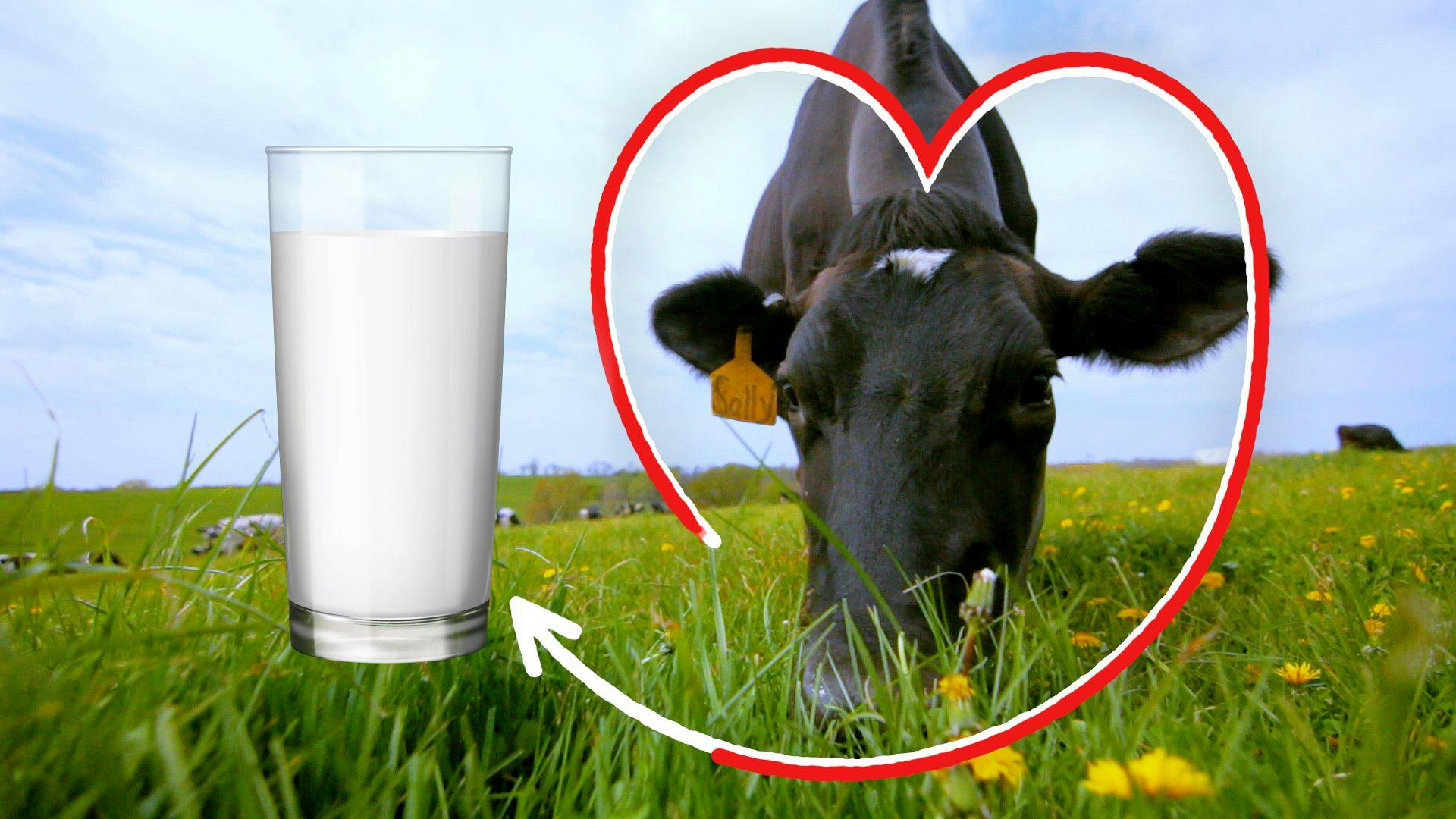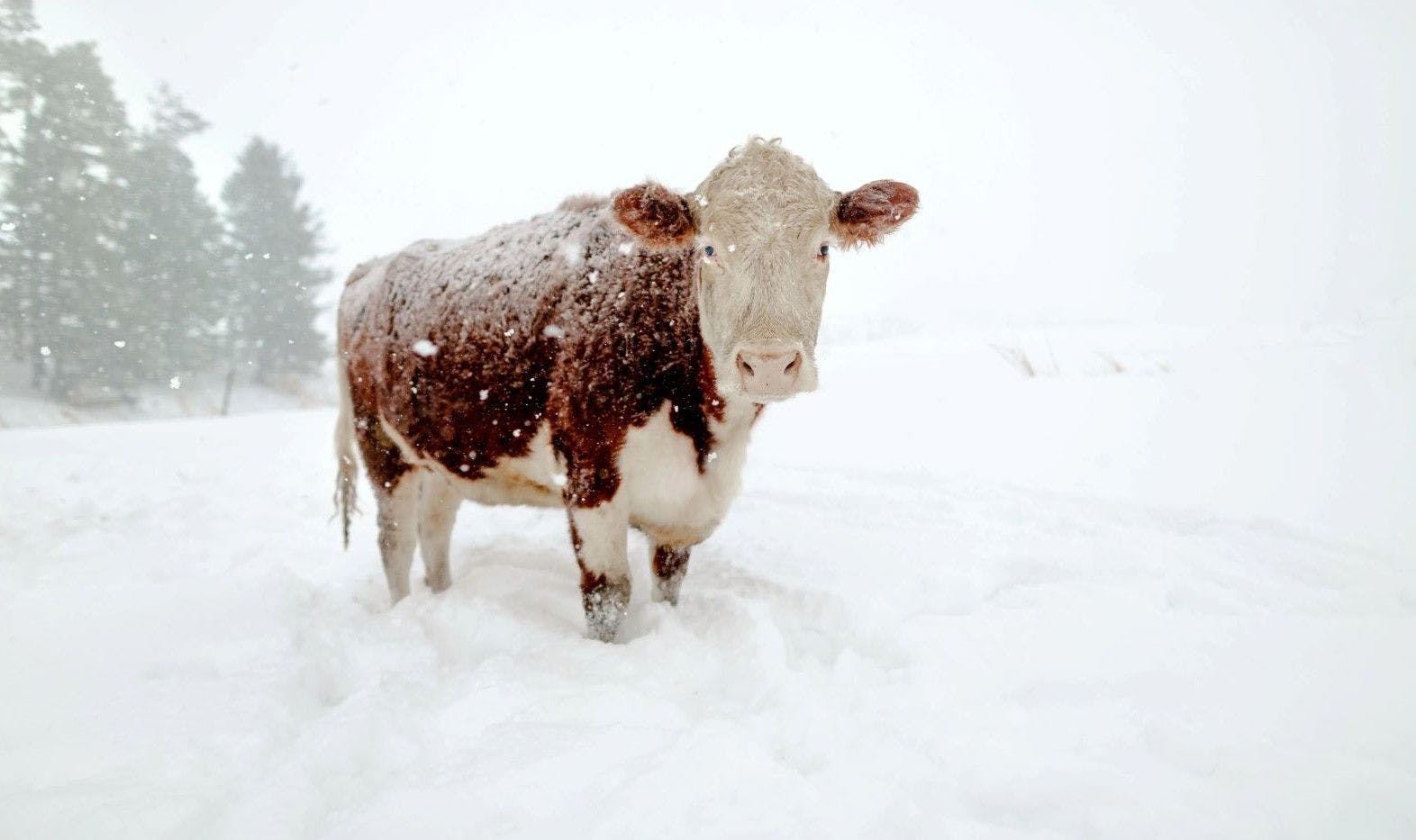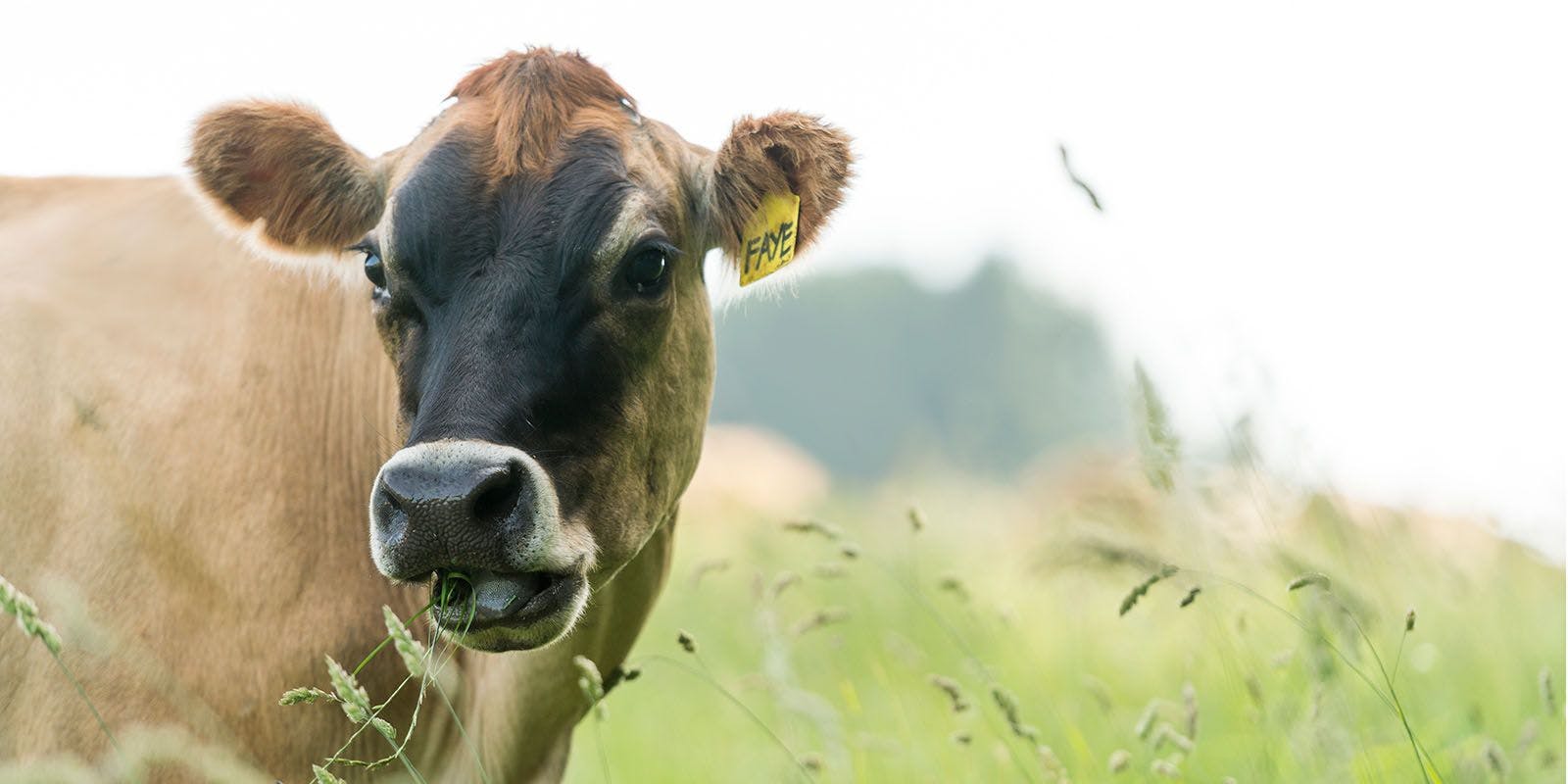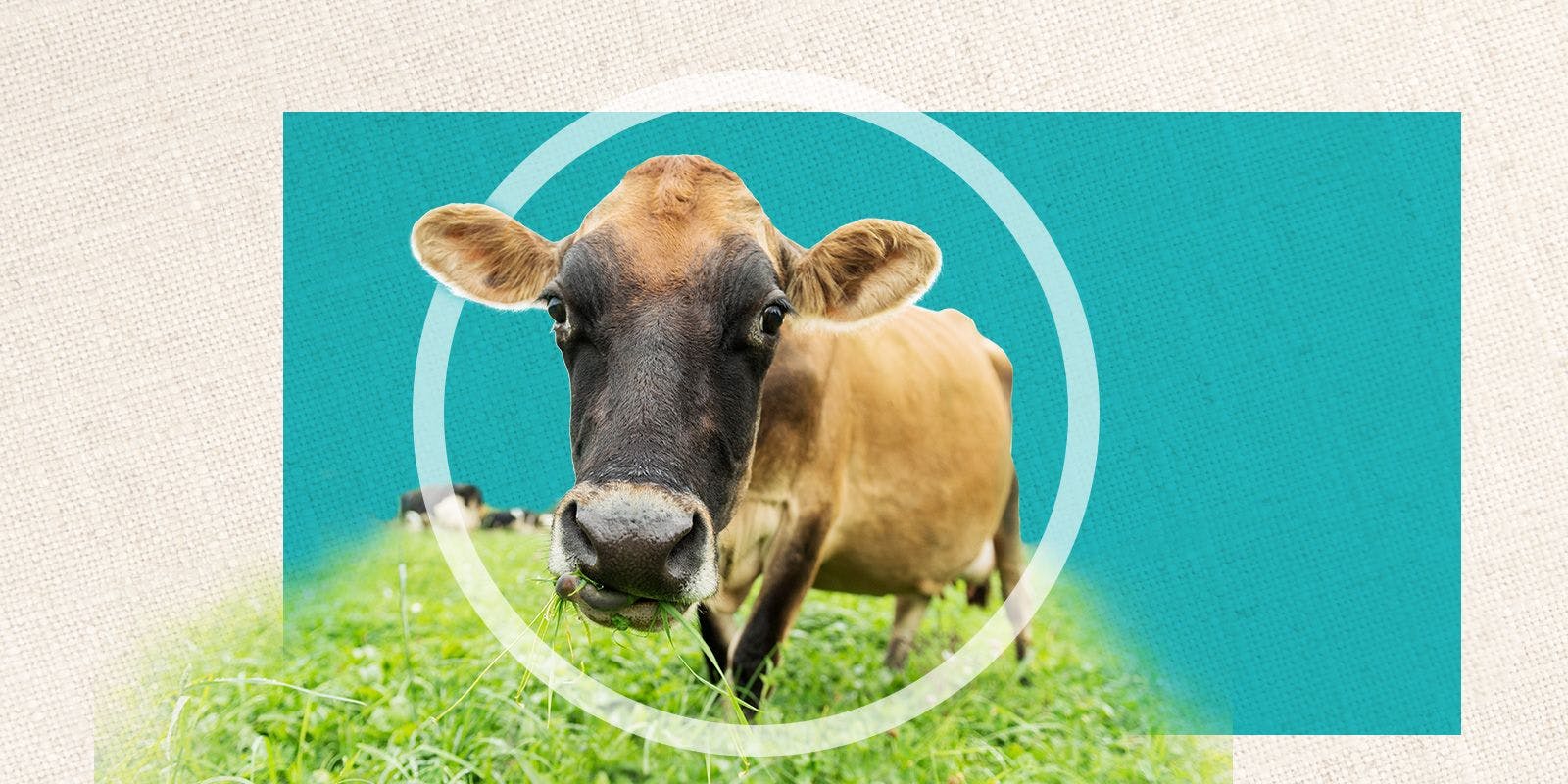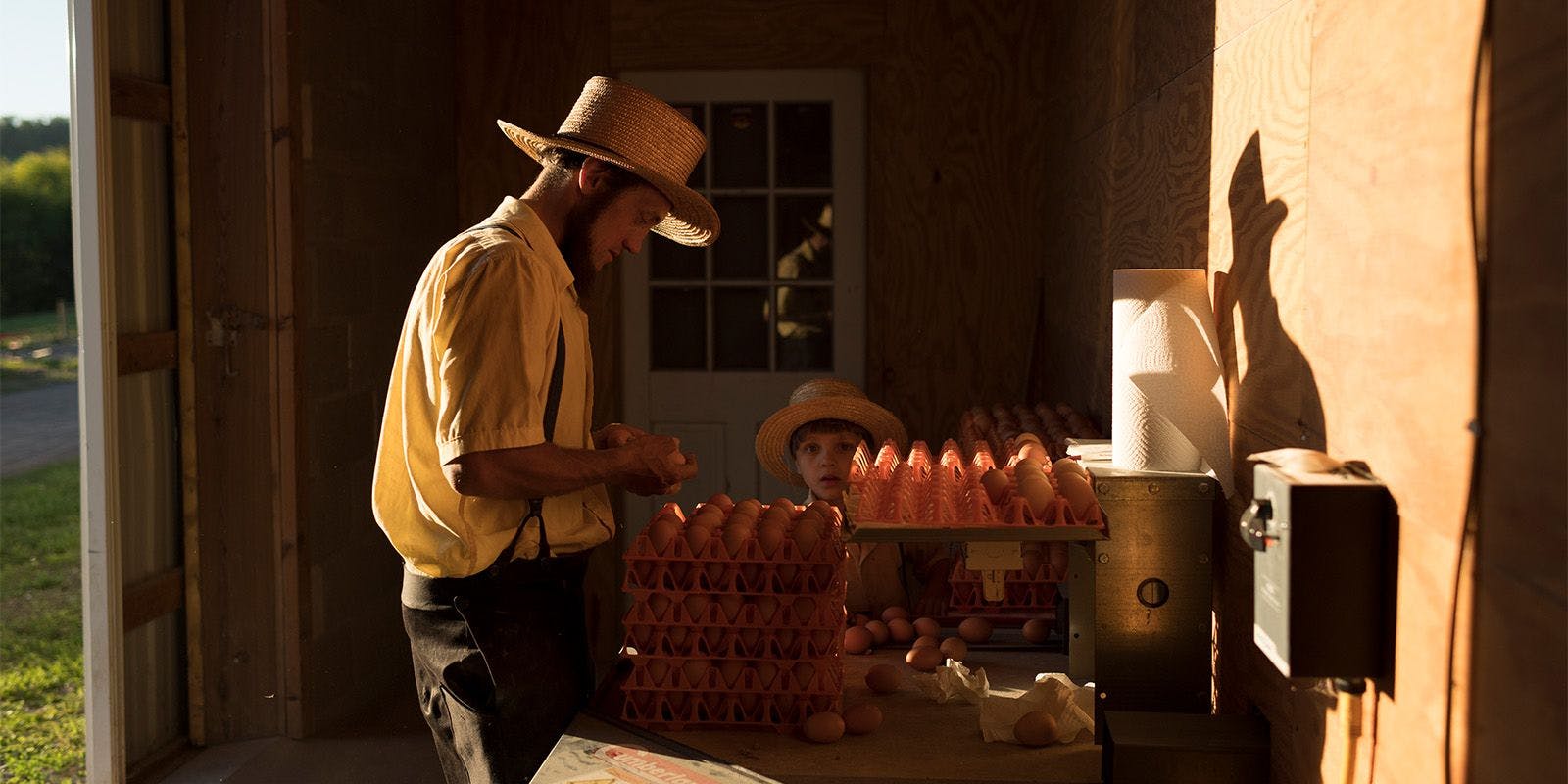
Farming
How Do Cows Stay Clean?
Keeping kids clean is a cinch compared to keeping a huge cow clean. You can change kids’ clothes, plunk them in a bathtub, or even do a quick spit polish where necessary. Kids eventually learn to clean themselves (though they may need a reminder every now and then!).
So, how on earth do farmers keep dairy cows clean? Can cattle groom themselves? Does Mom spit polish her calf until it eventually learns to clean itself?
Unlike house pets, cows are outside most of the time (especially if they’re Organic Valley cows!), so they’re bound to get dirty. Cows aren’t as able to “self-clean” the way cats and dogs do.
Cows will use trees or bushes to rid themselves of shedding hair. You’ll often see cows grooming each other and especially their calves. But social grooming doesn’t take care of everything.
Here’s how Organic Valley farmers tend to manage dairy cattle to keep them clean, healthy, and happy.

Cows on organic pasture at the Phillips farm in New York.
Green Pastures Mean Cleaner Cows
One of the best ways to keep cows clean is to practice rotational grazing. After all, cattle evolved as a migratory species, meaning they were always on the move to fresh grazing ground.
So intensive rotational pasture is the method most commonly used on Organic Valley farms. In intensive rotational pasture, land is divided into smaller sections, called “paddocks,” and cows are shifted from one fresh organic pasture to the next. The ground doesn’t get as chewed up by hooves so there’s less exposed dirt, mud, and pesky cow pies for a cow to lie on when she decides to take a snooze from her usual eight hours eating.
Speaking of hooves, cows that walk on pasture tend to wear their hooves down naturally and hooves don’t need to be trimmed. Many conventional farms use cow foot baths with chemicals like copper sulfate or formaldehyde to control contagious diseases of the feet.
But let’s face it: Just like humans, some cows are naturally better at staying clean to begin with. When it comes to certain messy moos, farmers might hose that cow down when she comes in for milking or give her a good brushing. Organic Valley farmers take animal care seriously!
Clean Barns and Clean Cows
To begin with, parlors, barns, and milking equipment are kept scrupulously clean using a variety of techniques. The McMahan family in Washington uses robotic scrapers to keep the alleys and gutters clean of cow poop. If you don’t have robots to do it for you, power hoses work just fine to clean cow pens.

Collin McClelland, California, cleans the barn after the cows are milked.
Farmers want their dairy cows as clean as possible when they come into the barn. If you start with a clean animal, it reduces milking time and the time the animals have to stay indoors.
But on to the actual milking …
Cow teats are disinfected before milking and sometimes the entire bag (udder) has to be cleaned as well if a cow has managed to lie down in a muddy (or poopy) spot. Keeping cows’ indoor lounging area clean and comfortable is an excellent strategy.
How to Brush a Cow
A good old hand brush or cow grooming brush, like you’d use to groom a horse, works well, but other nifty tricks that help keep cows clean are automatic brushes in the barn for the cattle to use as they wish. They look like big car wash brushes hanging at cow height. The brushes start automatically as soon as the cow rubs against it. This helps her slough off dried dirt and shedding hair, and it provides an ahhhh-inducing back scratching. Cows love it and wait in line for their turn.

A cow enjoys a good brushing at the Meyer organic farm in Vermont.
Do farmers brush cows’ teeth? It is not typical practice to brush cows’ teeth. In fact, the only time a vet would check a cows’ teeth is if there appears to be a problem.
Keeping Flies Away
Another tool cows learn to love is a fly vacuum. It’s basically a large, stall-sized enclosure that’s placed at the primary laneway leading to the pastures. The cows are milked twice a day and must pass through the fly vac four times a day when they come in for milking and when they go back out to pastures after milking.
Why do we care about flies? Well, you can’t constantly spritz cows with bug repellant or put clothing on them to keep bugs off. Flies are incredibly aggravating, and cows use a tremendous amount of energy daily trying to keep flies off. That’s energy they need to eat and drink as much as they do every day, so anything farmers can do to reduce that aggravation benefits the animals.
The machine is a substantial investment right off the bat, but the benefits pay off over time, and that’s what organic farming is all about.
So from dawn to dusk, dairy cows on Organic Valley farms are enabled to keep themselves clean as much as they can and manually or robotically groomed when necessary, not to mention disinfected at milking time.
Organic Valley cows get a lot of one-on-one attention from farmers, who know which messy moos need a little extra grooming. Cow comfort, health, and well-being are important to us. Cows provide delicious, quality milk and we want them to live their best lives!
Related Articles
- Tags:
- animal care,
- farm labor














